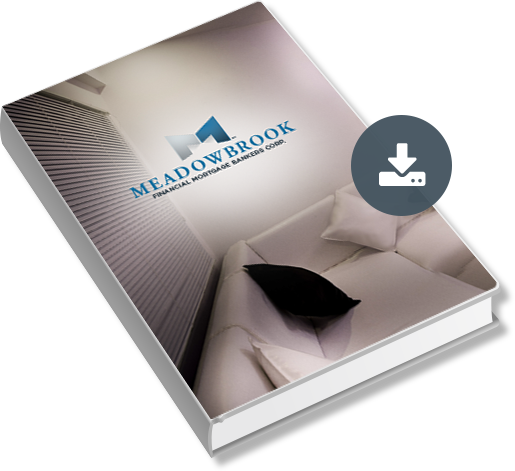Search Blog Posts by Blog Topic
Is Refinancing a Mortgage Right for You?
April 4, 2024
Several homeowners think about refinancing their mortgages for a variety of reasons. While someone might refinance for a lower interest rate, someone else might choose this path to move from an adjustable interest rate to a fixed-rate mortgage. In any case, knowing how the process works is crucial in determining if mortgage refinancing is the best option for you.
What Is a Mortgage Refinance?
Refinancing a mortgage does not involve making changes to the terms of your existing mortgage. Instead, it involves replacing an existing mortgage with a new one. This requires applying for a new mortgage, and once a lender approves your application, it repays your old loan. After this happens, you need to start making repayments toward the new one, and the previous mortgage no longer exists. Some people even choose to consolidate their other debt into a new mortgage.
Can You Refinance Your Mortgage?
Since refinancing a mortgage requires applying for a new one, you need to meet certain eligibility criteria. These depend on the type of mortgage you select although some lenders have their own requirements as well.
Looking to Purchase a Home on Long IslandContact Us
The Time Period
One of the most common questions surrounding refinancing a mortgage is “Is it always possible to refinance a mortgage?” In several scenarios, it is possible to refinance a mortgage without needing to wait. Exceptions come in the form of:
- If you wish to refinance with your existing mortgage provider, you might need to wait for up to six months.
- To refinance with a cash-out mortgage, your property should have served as your primary residence for at least 12 months prior to your application.
- Qualifying for an FHA streamline refinance requires having made a minimum of six monthly payments, with the mortgage being at least 210 days old.
- With VA loans, you need to wait until you make at least six monthly payments or for at least 210 days after making the first payment.
- If you opt to refinance through a streamlined or non-streamlined USDA loan, all your payments during the last 180 days should be on time.
- USDA’s streamlined assist refinance program requires having made all your payments during the last 12 months on time.
The 12-month waiting period that applies on cash-out refinancing does not apply if you’ve inherited the property or received it through a separation or divorce.
Credit Score
Applying for a mortgage requires meeting credit score requirements and this is no different with mortgage refinancing. More often than not, the minimum credit score you need depends on the type of mortgage you select, although some lenders have their own minimum limits. Here are the minimum credit scores you typically need to qualify for different types of mortgages.
- Conventional loans: 620
- VA loans: 620
- USDA loans: 640
- Jumbo loans: 700
- FHA loans: 500 with a 10% down payment, and 580 with a 3.5% down payment
If you don’t meet this requirement, it is best that you work on improving your credit score before applying for a new mortgage.
Home Equity
Home equity refers to how much of your home’s value you own. This is the amount you stand to receive if you sell your home and pay off your mortgage entirely. When it comes to conventional and cash-out refinancing, you typically need at least 20% equity to qualify. However, some lenders can go down to 10%.
If you have less than 20% equity in your house, you may check if you qualify for VA cash-out refinancing. While the Department of Veteran Affairs allows eligible applicants to refinance with no equity at all, most lenders who provide VA loans tend to cap it at 10%.

Debt-to-Income Ratio
Your debt-to-income (DTI) ratio indicates how much of your monthly income goes toward servicing your debt. It requires dividing the total of all your monthly payments by your gross monthly income. You get to see this number as a percentage. Most lenders look for DTI ratios of 40% or lower. The higher it is, the more difficult it is to qualify for mortgage refinancing. If your DTI is higher than 40%, consider reducing your debt before applying for a new loan.
Income
No matter which type of mortgage you wish to get, you may expect lenders to take a close look at your income because it has a significant effect on your ability to repay the loan. As a result, you will need to provide proof of income that comes in the form of your employment history, tax returns, W-2s, 1099s, and recent paystubs.
When it comes to mortgages for self-employed borrowers, you’ll need to provide tax returns for the preceding two years, year-to-date balance sheets, business account statements, and profit-loss statements. Applicants with W-2s may look forward to a simpler process.
What Is the Purpose of Refinancing a Home?
Not everyone refinances a mortgage for the same reason. Here are the most common reasons to consider refinancing:
- Lower interest rate: Interest rates keep changing. If there is a noticeable difference between your mortgage’s interest rate and existing rates, you might end up saving money by paying less toward interest.
- Term change: Some choose to refinance their mortgages to reduce or extend the term of the loan. For example, your existing mortgage comes with a 30-year term. However, you feel that you can afford to make larger monthly payments now and wish to refinance to a 15-year alternative. The opposite can hold true as well.
- Changing the type of mortgage: Switching from one type of mortgage to another is not uncommon and one of the most common examples is refinancing an adjustable-rate mortgage (ARM) to a fixed-rate mortgage. If you switch from an FHA loan to a conventional loan, you get to stop paying mortgage insurance premium (MIP).
- Using your equity: If you opt for a cash-out refinance, you get to borrow more money than you owe toward your existing mortgage. If the value of your home has increased, you might be able to get adequate funds to consolidate your other debts or renovate your home. When you borrow against the equity you build in your home, you stand to benefit from considerably lower interest rates than other types of loans.
- Paying down your balance: Not a very common option, a cash-in refinance involves getting a new mortgage and making a lump sum payment at the onset to bring down its balance. You may consider this alternative if you want to stop paying private mortgage insurance (PMI) or have negative equity.
Looking to Purchase a Home on Long IslandContact Us
How to Refinance Your Mortgage?
The process of refinancing an existing mortgage is largely the same as the one you follow when you apply for it in the first place. This is because you need to apply for a new mortgage and a lender needs to approve your application. However, you need to begin by establishing a clear goal. For example, do you want to lower your monthly payment, extend the loan term, or use the equity you’ve built? Then, you need to follow these steps.
- Check your credit score: While your credit score has an effect on the type of mortgage you may get, it also affects the interest rate that comes with your mortgage. Simply put, the better your credit score, the lower the interest rate you stand to get. If your credit score is less-than-desirable, consider improving it before moving forward.
- Look at the equity you’ve built: Having less than 20% equity in your home limits your options when it comes to the number of lenders who might be willing to give you a new mortgage.
- Select a refinance type: Determine the type of mortgage refinance that might work best for you based on your specific requirements. Your options include rate and term refinance, cash-out refinance, cash-in refinance, and no-closing-cost refinance.
- Submit your application: Once you select a lender, submit an application along with all the required documents surrounding your income, assets, and debt. The lender uses the information you provide to determine if you qualify.
- Consider locking the interest rate: Your lender might give you the option of locking the interest rate it offers so it does not change before the loan’s closing, typically by paying an added fee. Lenders usually offer rate locks for 30, 45, or 60 days. Some offer rate lock extensions too. The flipside of not locking the rate is that it might increase by the time you reach the closing table, although it may decrease as well.
- Wait for the underwriting to complete: The underwriting process involves verifying all the information and documents you provide with your application. While your lender will scrutinize your finances and creditworthiness, a home appraisal is also a part of the process.
- Get ready for an appraisal: You may expect the lender to carry out a home appraisal at this stage to determine your home’s existing market value. If you’ve carried out extensive repairs/improvements or modified the home significantly after purchasing it, let the appraiser know as it might result in a higher appraised home.
- Close the loan: With the underwriting and home appraisal out of the way, you move to the closing table. Make sure you go through the Closing Disclosure carefully in advance and don’t hesitate to seek clarification from your lender if you have any doubts or questions. If you have not rolled in the closing costs in your new mortgage, you’ll need to pay them at this stage.

How Closing Costs Work
Bear in mind that there is no such thing as a no-cost mortgage refinance and you will need to pay closing costs. However, several lenders give you the option of rolling the closing costs into the loan. This way, you don’t have to pay closing costs at the onset but get to pay them through the course of the loan term because they become a part of the principal amount.
Pros and Cons of Refinancing Your Home
When interest rates fall, it’s common for homeowners to wonder if they might benefit by refinancing their existing mortgages, and there are other advantages as well. However, it is prudent to look at the negative side of refinancing before moving forward with the process.
Advantages of Refinancing a Home Loan
- Possibility of getting a lower interest rate
- Ability to increase or decrease monthly payments
- Pay off the new loan sooner
- No need to make a down payment
- Get cash out and use the money for different purposes
- Consolidate high-interest debt and save on interest charges
- Move from an adjustable-rate to a fixed-rate mortgage
- Option to add a co-borrower
Disadvantages of Refinancing a Home Loan
- Need to pay refinancing fees/closing costs
- Taking cash-out can bring down the equity you hold
- A longer loan term typically means paying more toward interest
- A slight negative impact on your credit score
Conclusion
If you choose to take the mortgage refinancing path, you get the ability to change the terms of your mortgage by lowering your monthly payments or paying it off sooner than initially planned. Besides, it can also give you access to funds if you want to use the equity you’ve built in your home. However, as with any major financial decision, it’s important that you weigh the pros and cons, and you may also want to discuss it with your financial planner.
Once you determine that refinancing a mortgage is right for you, take time to compare your options, be it in the form of the types of mortgages for which you may qualify or the lender you should select. Remember that choosing a reliable mortgage provider can make your refinancing process seamless and rewarding.
Ready To Get Started?
Fill out the form below and a mortgage professional will get back to you shortly.

First Time Homebuyer’s Guide
Considering homeownership but not sure where to begin? The Meadowbrook Financial Mortgage Bankers Corp. guide to home buying will make the process easy all in one packet.
Recent Articles

Should You Buy an Under-Construction, New Build, or…
18 June, 2025The dream of owning a home often comes with having to make an array of decisions, and perhaps none is more crucial than choosing the…

How Do Pets Influence Homebuying?
1 May, 2025Adding a furry friend to your family can bring so much joy to your life. Whether it’s a dog, cat, bunny, or other, they’re sure…

Tips to Speed Up Closing on a House
1 April, 2025When you find your dream home, you want your next chapter to begin as soon as possible! Closing on a house is certainly a process…


